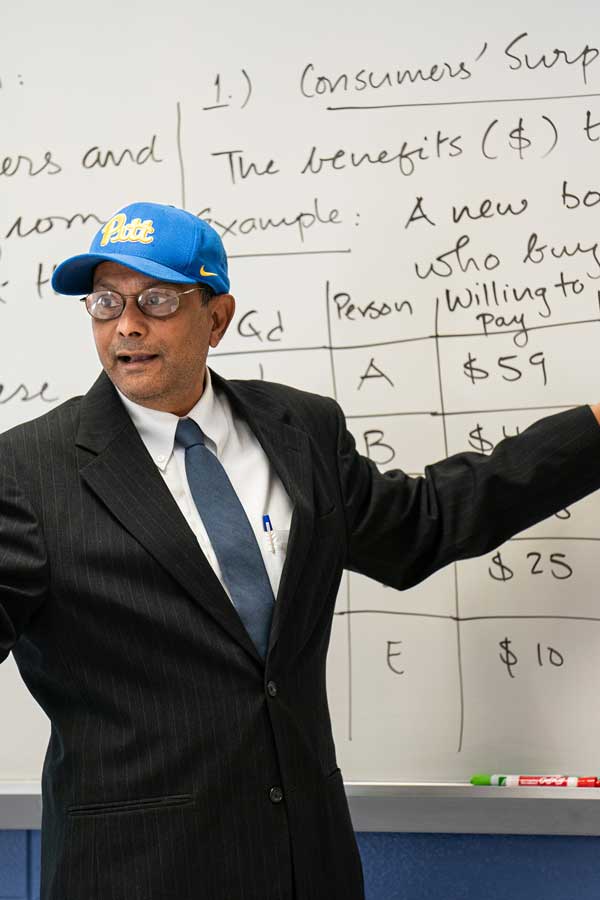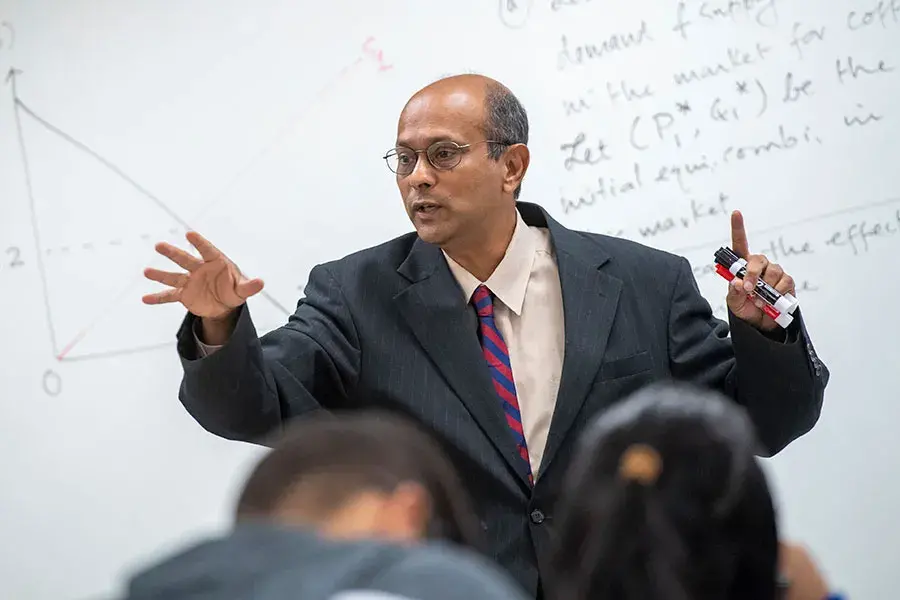
Economics - BA
Study historical trends to make economics forecasts that will maximize profits.
Why study economics at Pitt-Bradford?
Economists are needed to conduct research, collect and analyze data, monitor economic trends, and develop forecasts on a wide variety of issues, including energy costs, inflation, interest rates, exchange rates, business cycles, taxes, and employment levels, among others.
What will I learn?
Analyze and study basic principles. Review economic policy decisions and their effects. And get involved -- really involved. Join our Business Club. Compete in the AT&T Stock Challenge. Work on research with your professors.

What can I do with a degree in economics?
Our program will prepare you for a satisfying career. Our graduates are working at American Express, banks and financial institutions, and chambers of commerce in large cities. Or, you can go on to graduate school and study law, business administration, or political science.
Job Titles:
- Economist
- Sales analyst
- Investment administrator
- Financial service manager
- Securities analyst
- Market researcher
- Income portfolio manager
- Customer profit analyst
- Economic forecaster
- Research analyst
Employers:
- Stock exchange
- Bank
- Manufacturing firm
- Economic research institution
- International trade company
- Government agency
- Real estate agency
- Oil company
-
ECON 0201
Money And BankingA study of the nature of money and the role it plays in an economic system. The functions of institutions, such as commercial banks, other financial intermediaries and the federal reserve system will also be studied along with the monetary policies of the United States treasury. -
ECON 1304
Econometrics & Bus ForecastingThis course deals with regression theory covering bivariate and multiple regressions with associated problems such as multicollinerity, heteroscedasticity and autocorrelation. Coverage extends into estimation techniques including simultaneous-equation models.
Program-Related News

Gajanan shows rural students had more mental stress during pandemic
Study also finds that students with more mental stress had poorer academic performance.

Cole to receive alumni award of distinction
Entrepreneur founded marketing firm